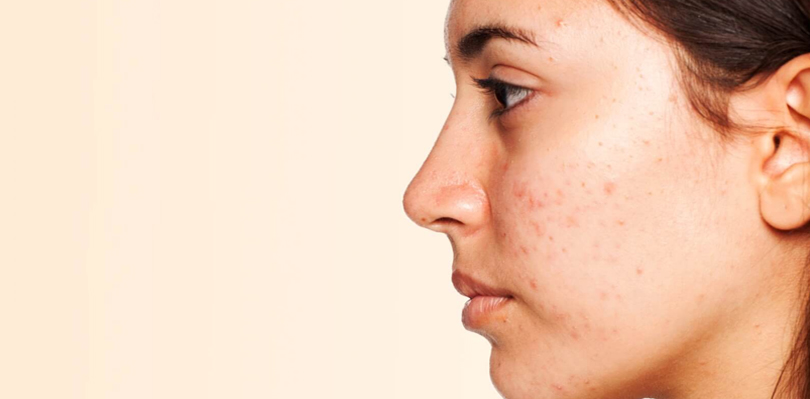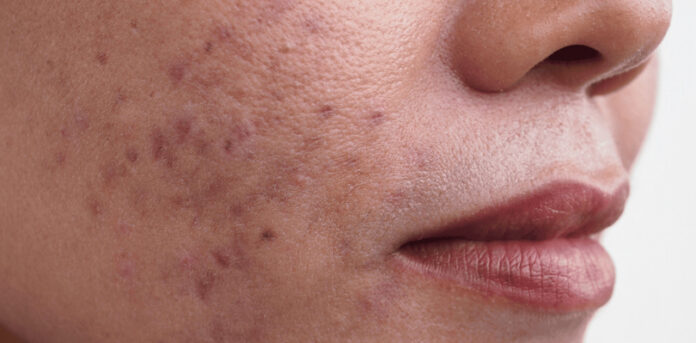Having smooth and glowing skin is a dream for many. Unfortunately, different skin concerns can hinder your dream, affecting your self-esteem and overall well-being. Hyperpigmentation, acne, and redness are three common skin problems that can be frustrating to tackle.
Such skin issues not only influence our physical appearance but also take a toll on our emotional well-being, impacting our self-esteem and confidence. However, the good news is that the advancements in skincare offer a ray of hope for those trying to overcome these issues.
Let’s take a moment to discuss various skin concerns including hyperpigmentation, acne, and redness.
Hyperpigmentation

Hyperpigmentation is one of the common skin concerns characterized by the darkening or discoloration of particular areas of your skin. This skin concern occurs due to the overproduction of melanin, the pigment responsible for giving our skin its color.
Although hyperpigmentation is normally harmless, it can be frustrating for many people. It can affect highly observable areas such as the face, neck, and hands.
There are several types of hyperpigmentation, such as melasma, sunspots, and post-inflammatory hyperpigmentation (PIH)
Cause Of Hyperpigmentation
Here are some of the most common causes of hyperpigmentation you need to know:
Sun Exposure: One of the primary causes behind hyperpigmentation is long and unprotected exposure to the sun’s harmful ultraviolet rays. These rays increase the production of melanin as a protection agent to protect your skin from damage.
Hormonal Factors: Hormonal changes during pregnancy, menopause, or while taking specific contraceptives can boost the production of melanin, resulting in melasma or the “mask of pregnancy.”
Post-Inflammatory Hyperpigmentation (PIH): Provocative skin disorders including acne, eczema, or psoriasis can cause skin trauma, leading to increased production of melanin in the affected areas. Once the inflammation subsides, PIH may occur, leaving behind dark spots.
Aging: As we age, the process of cell turnover slows down. This leads to a build-up of pigmented cells on the skin’s surface, which can contribute to age-related hyperpigmentation.
Effective Treatments For Hyperpigmentation
Let’s discuss some effective treatments to get rid of hyperpigmentation:
Hydroquinone: It is a skin-lightening agent that hinders the production of melanin. It is available in over-the-counter (OTC) products and prescription-strength formulations, which are more powerful but it should be used under the direction of a dermatologist.
Retinoids: These by-products of vitamin A boost cell turnover and helps to fade dark spots over time and reveal newer, more evenly toned skin.
Vitamin C: A powerful antioxidant, vitamin C, can help brighten your skin and reduce hyperpigmentation by inhibiting the enzyme accountable for melanin production.
Alpha Hydroxy Acids: AHAs, such as glycolic acid and lactic acid, exfoliate the skin’s surface, stimulating the shedding of pigmented cells and encouraging the growth of new, lighter skin cells.
Cryotherapy: Cryotherapy involves freezing the affected areas with liquid nitrogen, causing the darkened skin to peel off and be replaced by new, glowy skin.
Sun Protection: Preventing further hyperpigmentation is necessary. Always wear sunscreen with a high SPF, broad-spectrum protection, and reapply it every two hours, especially when going out.
Gentle Skincare Routine: Avoid harsh products or excessive exfoliation, as they can worsen hyperpigmentation. Opt for a gentle skincare routine and products according to your skin type.
Acne
Acne is a common skin condition that affects people of all ages. However, it is most general during adolescence and early adulthood. It happens when hair follicles become clogged with sebum and dead skin cells. This leads to the formation of whiteheads, blackheads, pimples, or even deeper cysts.
Cause Of Acne
Acne can be caused by various factors, including:
- Hormonal fluctuations
- Genetics
- Diet
- Stress
- Certain medications.
While acne can be frustrating and impact self-confidence, there are several effective treatments available to manage and prevent breakouts.
Types Of Acne
- Whiteheads: Closed comedones that appear as small, flesh-colored bumps with a white center. They occur when hair follicles become clogged near the skin’s surface.
- Blackheads: Open comedones that appear as small, dark spots on the skin. The black color is not due to dirt but is a result of the oxidation of melanin and sebum in the clogged pore.
- Papules: Small, red, and inflamed bumps that may feel tender to the touch.
- Pustules: Similar to papules, but with a white or yellow center caused by the accumulation of pus.
- Nodules: Large, solid, and painful lumps beneath the surface of the skin.
- Cysts: Deep, painful, pus-filled lumps that can lead to scarring if not treated properly.
Effective Treatments for Acne
Consider these effective treatment options for acne or related skin concerns if you want to get rid of them:
Salicylic Acid: An exfoliating mechanism that helps unclog pores and decreases swelling and redness. It is particularly helpful for treating blackheads and whiteheads.
Retinoids: Derived from vitamin A, retinoids promote cell turnover, prevent clogged pores, and reduce inflammation. They are available in prescription-strength formulations and over-the-counter products.
Topical Antibiotics: Applied directly to the skin, topical antibiotics can help control bacterial growth and reduce inflammation.
Oral Antibiotics: For moderate to severe acne, oral antibiotics may be prescribed to target bacteria and reduce inflammation from within.
Oral Contraceptives: For females with hormonal acne, certain birth control pills can help regulate hormones and reduce breakouts.
Anti-Androgen Medications: In cases of extreme androgen production, medications that block the effects of androgens may be prescribed.
Healthy Diet: A balanced diet rich in fruits, vegetables, and whole grains can promote overall skin health.
Moisturize: Use a non-comedogenic moisturizer to keep the skin hydrated without clogging pores.
Redness
Skin redness, also known as facial flushing, is a typical concern that can be caused by various factors, such as inflammation, sensitivity, or certain skin disorders like rosacea. Redness often occurs due to dilated blood vessels near the skin’s surface, making it more visible. It can be annoying and may affect a person’s self-esteem, especially when it occurs on the face. Fortunately, there are several useful treatments and strategies to manage redness and soothe irritated skin.
Causes Of Redness
Rosacea: A chronic skin condition characterized by facial redness, visible blood vessels, and sometimes, small bumps. It may be triggered by certain foods, alcohol, hot beverages, or extreme temperatures.
Sensitivity: Some individuals have naturally sensitive skin, prone to redness and irritation when exposed to certain skincare products, environmental factors, or harsh weather conditions.
Allergic Reactions: Irritation and redness can result from an allergic reaction to specific skincare products, detergents, or environmental allergens.
Sunburn: Excessive sun exposure or sunburn can cause skin redness and inflammation.
Skin Conditions: Conditions like eczema, psoriasis, or contact dermatitis can lead to red and inflamed skin.
Effective Treatments For Redness
Aloe Vera: Known for its calming properties, aloe vera gel can soothe redness and inflammation caused by various skin irritants.
Chamomile: Chamomile contains anti-inflammatory compounds that can help relieve redness and irritated skin.
Green Tea Extract: Green tea is rich in antioxidants and has anti-inflammatory effects, making it beneficial for redness-prone skin.
Licorice Extract: Licorice root extract has skin-calming properties and can help reduce redness and hyperpigmentation.
Moisturizers for Sensitive Skin: Look for moisturizers specifically formulated for sensitive or redness-prone skin. These should be free of harsh ingredients and fragrances that can exacerbate redness.
Sunscreen: Always wear a broad-spectrum sunscreen with a high SPF to protect the skin from UV rays, which can trigger or worsen redness.
Avoid Triggers: If you have identified specific triggers for your redness (e.g., certain foods, alcohol, or temperature changes), try to avoid them to minimize flare-ups.
Gentle Skincare Routine: Adopt a gentle skincare routine using mild, non-irritating products suitable for sensitive skin. Avoid excessive scrubbing or using hot water, as it can worsen redness.
Corticosteroids: For severe redness or inflammation, a dermatologist may prescribe topical or oral corticosteroids to reduce symptoms.
Targeting skin concerns like hyperpigmentation, acne, and redness require knowledge, patience, and the right strategy. By understanding the causes of these concerns and using targeted solutions, you can embark on a skincare journey that leads to clearer, healthier, and more confident skin. Don’t hesitate to seek professional advice and make lifestyle changes that support your skin health.
Also Read: Skincare For Men: Tips, Routine, And More
FAQs
What causes hyperpigmentation, and can it be prevented?
Hyperpigmentation is caused by an overproduction of melanin, the pigment responsible for skin color. The most common triggers include sun exposure, hormonal fluctuations, skin inflammation, and aging. While it may not always be completely preventable, you can minimize the risk of hyperpigmentation by diligently applying broad-spectrum sunscreen daily, avoiding excessive sun exposure, and wearing protective clothing when outdoors.
Is it safe to use multiple acne treatments simultaneously?
Using multiple acne treatments simultaneously can be harsh on the skin and may lead to excessive dryness, redness, and irritation. It is essential to take a gentle approach and avoid combining potent treatments like benzoyl peroxide, retinoids, and salicylic acid without guidance from a dermatologist.
How can I reduce facial redness caused by sensitive skin or rosacea?
If you experience facial redness due to sensitive skin or rosacea, adopting a gentle skincare routine is crucial. Look for products labeled as suitable for sensitive skin, free of harsh ingredients, and preferably fragrance-free. Incorporate calming ingredients like aloe vera, chamomile, or green tea extract in your skincare products.

